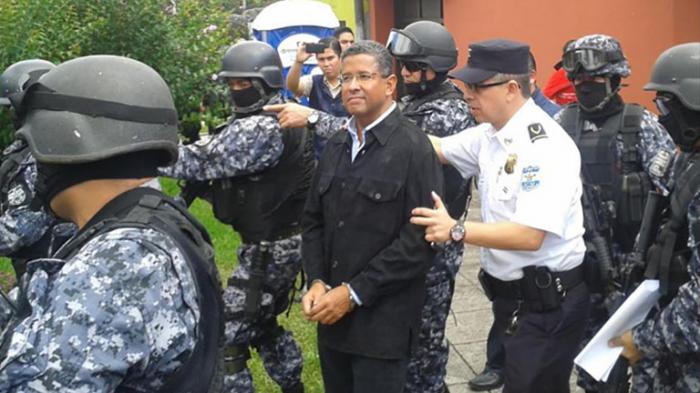
SAN SALVADOR.-The start of preliminary hearings in the criminal trial against former president Francisco Flores on charges of embezzlement, illicit enrichment and disobedience, postponed at the request of the prosecution and experts, who requested more time for investigations and analysis of evidence, has generated high expectations in El Salvador.
At the public hearing, jurists will determine whether Flores, honorary chairman of the Nationalist Republican Alliance (ARENA), will go to trial or be released.
Organizations such as the Social Initiative for Democracy believe that the outcome of this case, the first to see a former public official of such a high ranking formally charged with corruption, since the signing of the Peace Accords in 1992, may set a precedent in Salvadoran justice.
They claim it could become one of the most emblematic cases in the fight against impunity in the Central American nation.
Regarding the case, Secretary General of the Farabundo Martí National Liberation Front (FMLN), Medardo González, emphasized that for the first time in El Salvador’s history, a former president of the republic is in jail.
“He is being investigated precisely to be tried for corruption. Something never seen, something unprecedented, something extraordinary, unthinkable 20 years ago,” the political leader stressed.
The state has finally managed to take a first step and is participating in this struggle, the battle to overcome impunity, he added.
He recalled that Flores was President of the third ARENA government (1999-2004), during which the neoliberal model was implanted in this nation.
It was during this administration that El Salvador was stripped of its monetary policy and the dollar was imposed by the Legislature, he noted.
González also recalled that in 2001, during Flores’ mandate, there were two earthquakes in the country, causing hundreds of deaths and destroying thousands of homes.
Following the emergency, about a billion dollars were handed over to the central government in order to build homes for those affected, but no construction took place.
He emphasized that corruption was an essential part of the installation of the neoliberal model in this Central American country.
While the reform of El Salvador’s economic and political model was underway, with measures taken to privatize state assets, senior officials of the ARENA party were misusing government funds, González said.
He added that the Legislative Assembly committee investigating the case revealed that at least 70 million dollars were illegally appropriated.
On January 7, 2014, Flores appeared before a special legislature committee investigating the misappropriation of 10 million dollars donated by Taiwan to assist victims of the 2001 earthquakes.
The former president admitted personally receiving several donations from the Taiwanese government and revealed that he had directly handed these over to those responsible for distributing the funds, but did not explain who was in control of this money, which never entered state coffers.
Flores was summoned to appear again on January 28, and after a long session of questions, the hearing was set to resume on the 30th. He failed to appear and went missing, fugitive for four months until September 5, 2014, when he turned himself in.
The case came to trial on April 30 and Flores was charged with embezzlement, illicit enrichment and disobedience. However, the parliamentary committee also felt that the former president had committed bribery, illicit dealings, arbitrary acts, money and asset laundering and perjury.
It concluded, after several interviews with officials from his administration, that Flores had received 80 million dollars in donations for earthquake relief, coffee growing, dealing with gangs and drug trafficking and to rebuild following the damages caused by Hurricane Mitch.
The scandal came to light in late 2013 when former president Mauricio Funes (2009-2014) released a report by the Financial Crimes Enforcement Network of the U.S. Treasury Department.
Said report shows that Taiwan issued three checks from a New York bank account to the Banco Cuscatlan of Costa Rica in the name of the former president.
According to the investigation, some million dollars were funneled to ARENA. The Rodríguez Porth Centre for Policy Studies, created by party members, opened an account at the Banco Cuscatlan in October 2003, where the funds in question may have gone.
Flores, the first president in the history of this country to be brought to justice for corruption, is under house arrest due to thrombosis, and if found guilty could serve a maximum sentence of 23 years in prison.








